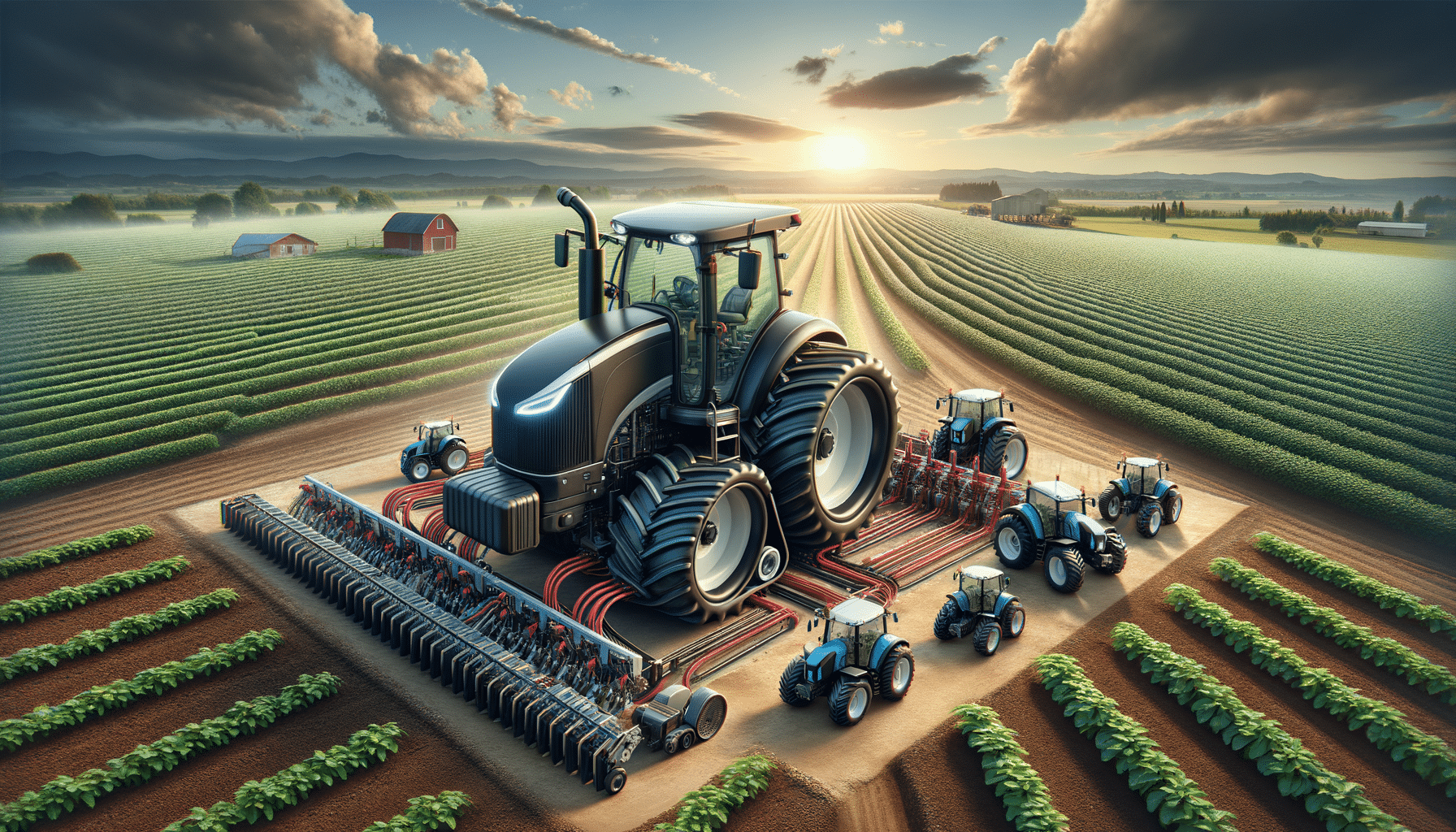Power Up Your Farm with Compact Small Tractors
Efficient and Versatile, These Small Tractors Are Perfect for Handling Big Tasks on Small to Medium Farms.

Introduction to Small and Compact Tractors
In the ever-evolving world of agriculture, the demand for efficient and versatile machinery is paramount. Small tractors and compact tractors have emerged as essential tools for farmers and landowners, offering a blend of power and maneuverability that makes them ideal for small to medium-sized farms. These tractors are not only cost-effective but also provide a range of functionalities that can significantly enhance productivity.
Small tractors are designed to perform a variety of tasks, from plowing fields to hauling heavy loads, making them indispensable for modern farming. Their compact size allows them to navigate through tight spaces, which is particularly beneficial for farms with limited acreage. Compact tractors, on the other hand, are slightly smaller than traditional tractors but pack a punch in terms of performance. They are perfect for tasks such as landscaping, gardening, and general maintenance.
The importance of these tractors cannot be overstated, as they offer a practical solution for those looking to maximize efficiency without the need for large, cumbersome machinery. In this article, we will explore the various aspects of small and compact tractors, including their features, benefits, and how they compare to larger models.
Features and Benefits of Small Tractors
Small tractors are engineered to provide a balance between power and size, making them suitable for a wide range of agricultural tasks. One of the standout features of these tractors is their versatility. They can be equipped with various attachments, such as mowers, loaders, and tillers, allowing them to perform multiple functions on the farm.
Some of the key benefits of small tractors include:
- Cost-Effectiveness: Small tractors are generally more affordable than their larger counterparts, making them an attractive option for farmers on a budget.
- Fuel Efficiency: These tractors consume less fuel, which translates to lower operational costs in the long run.
- Ease of Use: With user-friendly controls and a compact design, small tractors are easy to operate, even for those with limited experience.
- Low Maintenance: Due to their simpler design, small tractors require less maintenance, reducing downtime and repair costs.
The compact size of these tractors also means they can be stored easily, taking up less space in the barn or garage. This feature is particularly beneficial for those with limited storage facilities.
Compact Tractors: A Closer Look
Compact tractors are a subset of small tractors, designed to offer high performance in a smaller package. These tractors are particularly popular among hobby farmers, landscapers, and those with small to medium-sized properties. Despite their smaller size, compact tractors are equipped with powerful engines that enable them to tackle demanding tasks with ease.
One of the defining characteristics of compact tractors is their adaptability. They can be fitted with a wide range of attachments, making them suitable for tasks such as:
- Snow removal
- Landscaping
- Lawn mowing
- Material handling
Compact tractors are also known for their comfort and safety features. Many models come with ergonomic seating, easy-to-read displays, and enhanced safety mechanisms, ensuring a comfortable and secure operation. Additionally, their smaller footprint allows them to maneuver in tight spaces, making them ideal for properties with limited access.
Comparing Small and Compact Tractors to Larger Models
When considering the purchase of a tractor, it’s important to weigh the pros and cons of small and compact tractors against larger models. While larger tractors offer more power and capacity, they may not be the best fit for every situation.
Here are some factors to consider:
- Size and Maneuverability: Small and compact tractors excel in areas where space is limited. Their ability to navigate tight corners and narrow paths is unmatched by larger tractors.
- Cost: Larger tractors come with a higher price tag, both in terms of initial purchase and ongoing maintenance. Small and compact tractors offer a more economical solution without sacrificing functionality.
- Versatility: While larger tractors can handle heavy-duty tasks, small and compact tractors are more versatile due to their ability to switch between different attachments quickly.
- Fuel Consumption: Smaller tractors are generally more fuel-efficient, making them a greener choice for environmentally conscious farmers.
Ultimately, the decision between small, compact, and larger tractors depends on the specific needs of the farm or property. For many, the benefits of small and compact tractors make them the preferred choice.
Conclusion: Choosing the Right Tractor for Your Needs
In conclusion, small and compact tractors offer an exceptional balance of power, versatility, and affordability. They are well-suited for a variety of tasks on small to medium-sized farms, making them a valuable asset for any landowner. Whether you are plowing fields, maintaining landscapes, or managing livestock, these tractors provide the efficiency and functionality needed to get the job done.
When selecting a tractor, it’s essential to consider the specific requirements of your farm or property. Evaluate the tasks you need to perform, the terrain you will be working on, and your budget to determine the best fit. Small and compact tractors are renowned for their ability to deliver outstanding performance, making them a smart investment for those seeking a reliable and versatile farming solution.
By understanding the capabilities and benefits of small and compact tractors, you can make an informed decision that enhances productivity and supports the growth of your agricultural endeavors.